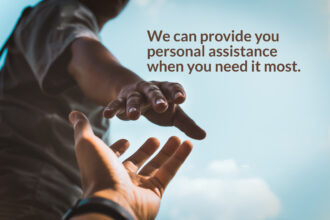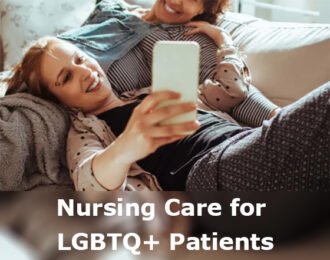Conversion therapy is harmful to LGBTQ people and costs society as a whole, study says

By Jen Christensen, for CNN – March 7, 2022, Updated March 11, 2022
(CNN)So-called conversion therapy causes serious emotional harm to LGBTQ people and can even be deadly, but it also comes with a high financial cost to individuals and to society as a whole, according to a new study.
The study, published Monday in the medical journal JAMA Pediatrics, analyzed 28 earlier studies about conversion therapy, which attempts to convert people who identify as lesbian, gay, bisexual, transgender, queer or questioning into straight or cisgender people.
The practice, also known as reparative or sexual orientation change efforts, has been discredited by every major professional association that deals with mental health. The assumption that someone’s sexual orientation or gender identity can be changed is not based on medical or scientific evidence, according to the American Medical Association. In fact, the practice can lead to serious harm.
Conversion therapy is banned in at least 20 states and several cities across the country, but several bills have been introduced to preserve the practice or even to repeal the bans.
Affirmative therapy would save billions of dollars, study says
The study found that people who underwent conversion therapy had serious psychological distress, had significantly higher rates of depression and substance use problems, and attempted suicide more.
Over a lifetime, the estimated cost of this therapy amounts to nearly $100,000 per person, the researchers found. When compared with no intervention, affirmative therapy — psychotherapy that validates positive expression of sexual and gender identity — yielded cost savings of more than $40,000 per person, the study estimated.
Direct costs include costs of treatment, health outcomes, and mortality; indirect costs include the loss of productivity, the study said.
More than half a million LGBTQ youth in the US were at risk of undergoing conversion therapy in 2021, the researchers wrote, based on reported rates of therapy. Total conversion therapy costs were estimated at more than $650 million a year, and the harms linked with that estimated economic burden were $8.58 billion — for a total burden of $9.23 billion.
If LGBTQ youth were given affirmative therapy, the estimated savings would be $1.81 billion over no intervention and nearly $6.19 billion over conversion therapy over their lifetimes.
“It is incumbent on policymakers to act to protect youths from — and stop all funding for — this unacceptable practice,” the researchers wrote. “Likewise, increasing access to affirmative therapy may promote health by empowering LGBTQ youths with skills and strategies to counteract minority stress.”
Researchers from Cytel performed the analysis, and it was funded by The Trevor Project, nonprofit suicide prevention and crisis intervention organization that supports LGBTQ youth. Some of the study authors received grants from The Trevor Project, and their organization has been a paid consultant to The Trevor Project.
In an editorial accompanying the study, Dr. Johanna Olson-Kennedy of the University of Southern California Keck School of Medicine and Children’s Hospital Los Angeles wrote that “what remains bothersome is the necessity for a study that outlines the financial burden of such rigidity because the human toll is simply not enough to eradicate the dangerous practice of forcing individuals to conform to the heterosexual and cisgender normative expectation.”
Because this study identifies a substantial cost, the editorial concludes, “perhaps humanity might redirect its reparative efforts toward dismantling the harmful hetero and cisgender normative chokehold that continues to asphyxiate social evolution.”
The research has some limitations. The model accounts only for costs and outcomes for three years after the person has gone through the therapy, and the harms and costs could persist much longer, suggesting that this practice is costing a lot more.
‘Another piece of the picture’
Mike Parent, director of the Gender, Sexuality and Behavioral Health Lab at the University of Texas at Austin, said this research is important.
“I think we have long said that conversion therapy efforts are damaging, on top of being in vain. But the study is asking a different kind of question and shows not only is this damaging to the individual, it ends up costing society money, too,” said Parent, who was not involved with the study.
Parent thinks it is unfortunate that some people might care only about the financial consequences of this issue, particularly when the practice is so damaging to a person’s mental and physical well-being – the suicide rate alone is “astronomically high” – but he said it is a legitimate question to try to understand.
“It is another piece of the picture of how this is damaging, not only to the person but to society as a whole,” Parent said.
The past five years have brought several bans on the practice, but there have been a handful of pre-conversion therapy bills introduced, many of them focused on trans kids, said Alex Petrovnia, founder of the Trans Formation Project, a project of Step Up for Trans Kids that tracks anti-trans legislation.
Petrovnia said there are two bills that explicitly would allow the practice in Tennessee. There’s a “religious freedom” measure in Kentucky that would carve out a specific allowance. And Petrovnia said that “every single one of the anti-trans medical bans that we’ve seen has an explicit clause in it that specifically allows for intersex conversion therapies.”
Sean Cahill, director of health policy research at the Fenway Institute, a health association that advocates for and delivers health care and research focused on LGBTQIA+ people in Boston, said this study adds to the increasing body of evidence that conversion therapy hurts everyone who comes into contact with it.
“I think often parents, they’re not trying to hurt their kids, or they think they’re trying to help them,” said Cahill, who was not involved in the research. “I think it’s really important for parents to know that if they have their child do conversion therapy, their child has a greater odds of experiencing serious psychological distress, depression, substance use, and suicide. I would think that a lot of parents would not be happy to learn that.”
Cahill hopes people will take note of this research and understand its implications.
“I think it’s a really compelling analysis that hopefully public health professionals and health care providers, public health professionals and policymakers will pay attention to and think about, what are the policy implications for this? And what are the health care applications?”
This link will take you to the Trevor Project, a national, 24-hour, toll free confidential suicide prevention service for LGBTQ youth. Make a donation today to support LGBTQ youth in crisis. Resources & Guides.





